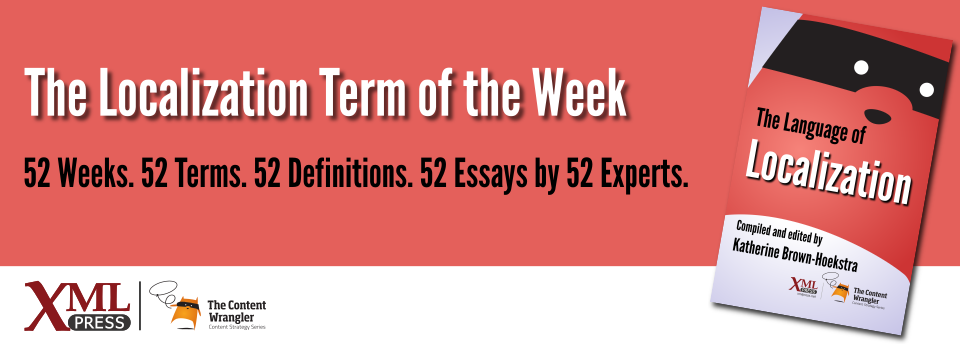What is it?
The practice of proactively maintaining dictionaries and glossaries to improve consistency within an organization. Terms are organized and controlled based on accepted standards, with a clear set of guidelines dictating their use within local contexts.
Why is it important?
Terminology management enables correct and consistent use of terms throughout the writing or translation process, or any other effort requiring accurate vocabulary usage.
Why does a technical communicator need to know this?
Words (or phrases) describe products or services; explain a product’s mechanisms; or tell customers how to use a product. Such terms are also used to tag content to support activities such as reporting, search, and personalization.
Technical terms are incorporated into the lexicon based on usage in a variety of content types, including product sheets, material declarations, support articles, informational videos, etc. The governance committee works with content and localization teams to select terms that reflect the organization’s perspective or that of a specific business unit and geographical region. Inconsistent use of terminology can cause confusion or result in legal problems, and, in particularly egregious medically related cases, it can kill[ThinkReliability 2010][Day Translations 2015].
Advantages to carefully controlling terminology include:
- consistency of voice and tone
- linguistic quality
- uniform word usage across an entire organization (including company-specific terms)
- conformance to legal requirements in particular regions or countries
- protection of trademarked and registered product names
Careful terminology management can facilitate translation reuse, reduce errors during authoring or translation, shorten revision time, and help streamline the content creation and localization process.
Terminology management systems maintain terms in a central database and allow terminologists to organize approved (and unapproved) terms in multiple languages. These systems define terms and provide editorial guidelines based on pre-established rules.
Governance committees of editors, terminologists, localization experts, and in-country reviewers should define these rules and provide input into usage guidelines. Governance over terms is based both on systematic rules and on this committee’s decisions[Solarek 2013].
References
- [Solarek 2013] Terminology Management DOs and DON’Ts. Weronika Solarek. Argos Multilingual. Recorded webinar about best practices for managing terminology.
- [ThinkReliability 2010] Errors in Translated Medication Instructions. Patient Safety Blog. blog post giving examples of problems with translations due to inconsistent terminology.
- [Day Translations 2015] Misdiagnoses and Deaths: Why Medical Translations Must be Done by Professionals: Day Translations blog post that discusses medical translation errors that caused patient harm. This post shows why translations should be done by professionals and how important terminology management can be to good translation.

